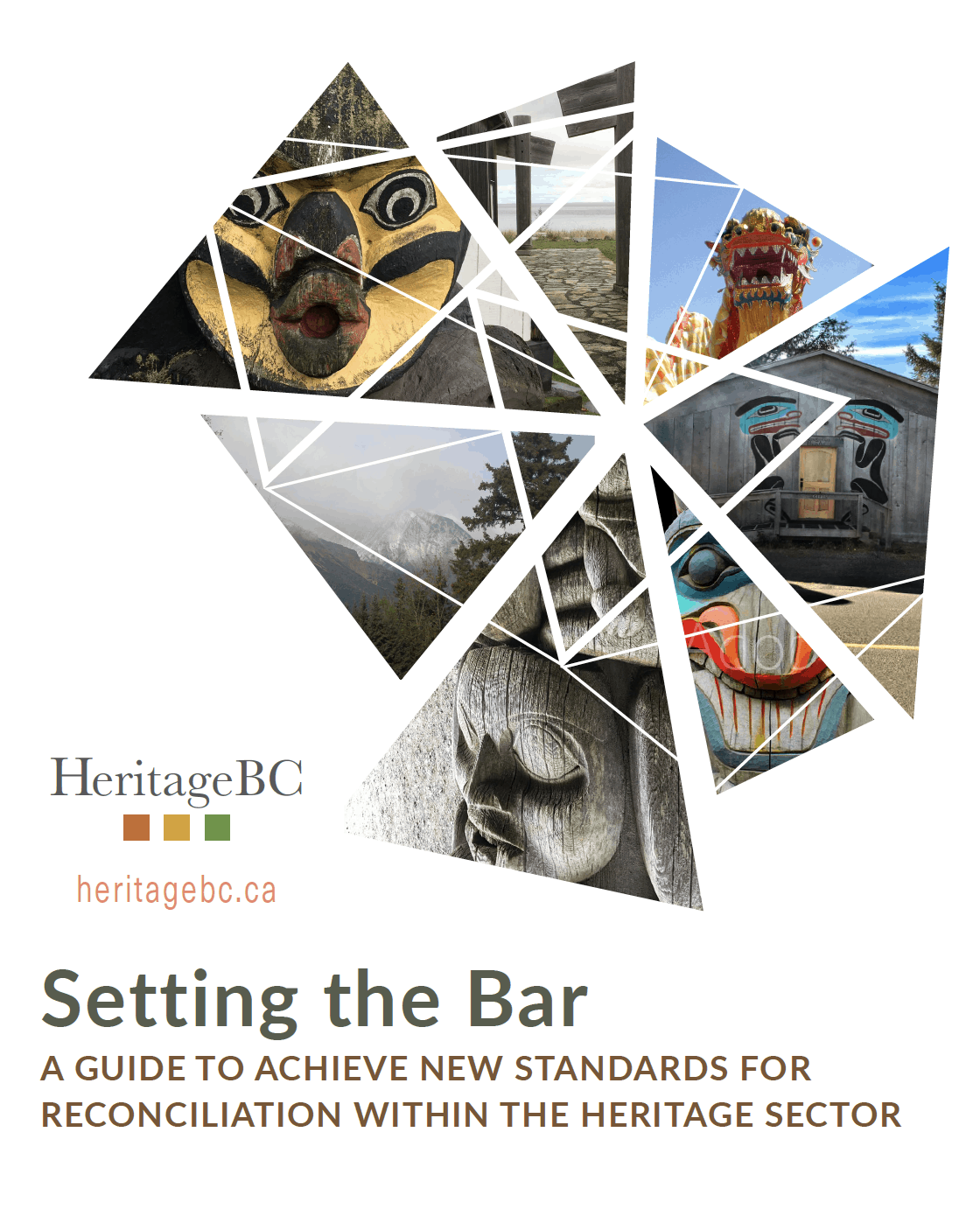- Heritage 101
- Advocacy
- Accessibility for Historic Places
- Climate & Sustainability
- Cultural Maps
- Heritage Place Conservation
- Heritage Policy & Legislation
- Homeowners
- Intangible Cultural Heritage
- Reconciliation
- Indigenous Cultural Heritage
- Setting the Bar: A Reconciliation Guide for Heritage
- 1. Heritage and Reconciliation Pledge
- 2. Acknowledging Land and People
- 3. Celebrating Days of Recognition and Commemoration
- 4. With a Commitment to Learn
- 5. Committing to Strategic Organizational Diversity
- 6. Mission-Making Room for Reconciliation
- 7. Possession, Interpretation, Repatriation and Cultural Care
- 8. Shared Decision Making
- 9. Statements of Significance and other heritage planning documents
- 10. Heritage Conservation Tools, Local Government Act
- Racism: Do Not Let the Forgetting Prevail
- Taking Action: resources for diversity and inclusion
10. Setting the Bar: Heritage Conservation Tools, Local Government Act

ACTIONS:
We acknowledge that access to, protection of, and benefits from one’s own heritage need to be recognized as basic human rights and we recognize heritage should be managed with or by the community.
We recognize Western ways describing and recognizing heritage are not superior and can be improved upon and can be adapted to reflect a broader worldview.
We recognize that the recognition and conservation of heritage should include shared decision-making, collaboration, delegation of authority and recognition of Indigenous worldviews. Indigenous ways of viewing the past, history and heritage are legitimate ways of seeing.
We recognize the need for relationship building with Indigenous peoples at a local level, as well as the consultation with Indigenous cultural experts and knowledge keepers.
Download 10. Setting the Bar: Heritage Conservation Tools and LGA
The Local Government Act offers a broad framework of heritage conservation tools that can be adopted by local and regional governments. Since the legislation came into force in 1996, the definition and practice of heritage has changed considerably, while the Act endures, it should not be a reason to exclude Indigenous cultural heritage and other concepts of cultural heritage or not to recognize living heritage.
Fortunately, the legislation is not prescriptive and increasingly local government staff, commissions and councils are exploring new boundaries in order to include other elements of heritage, including Indigenous cultural heritage (where appropriate and welcomed, of course).
Recognition and protection of an expanded range of heritage begins at the local level and new approaches at the local and regional levels will eventually influence provincial and federal legislation.
This section is directly drawn from “Recommendations for Decolonizing British Columbia’s Heritage-Related Processes and Legislation”, published by First Peoples’ Cultural Council in 2020.
